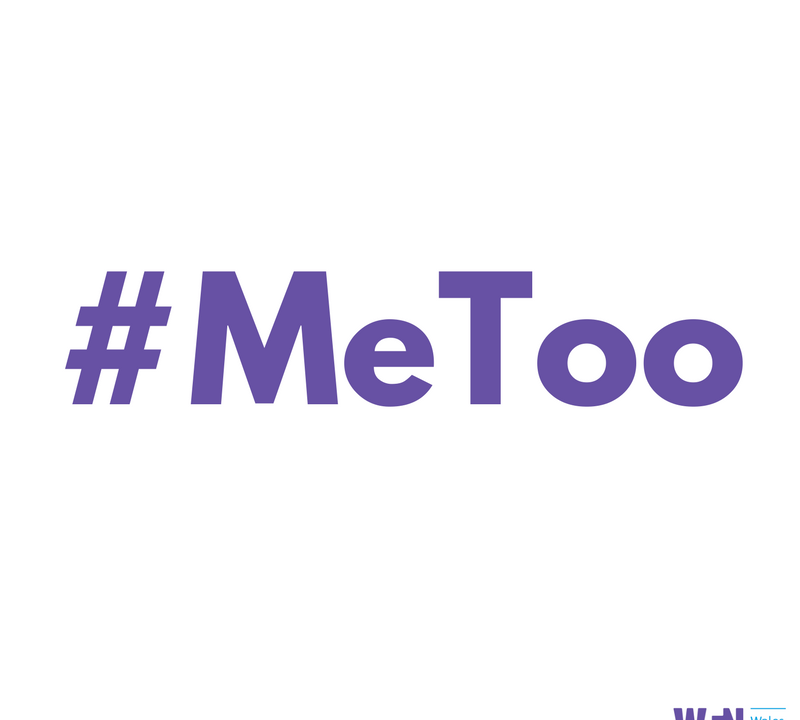Misogyny & the #MeToo movement – where next for Wales?

Catherine Fookes, Director of Women’s Equality Network (WEN) Wales, shares her thoughts on what needs to happen next
With lurid headlines coming at us almost every day regarding behaviour of men in both Westminster and now the Welsh Assembly you can’t switch on the radio or TV without hearing about what our response should be, who should be saying what and whether it’s becoming a ‘witch hunt’ or whether women are ‘over-reacting.’ And the flood gates have opened with women finally feeling they are able to share their stories with the hash-tag #MeToo. Brave women such as Bex Bailey, Jane Merrick, Kate Maltby, Cathy Owens and many more have all spoken up in the last two weeks and in doing so they have stood up for women everywhere so that this country can one day have a future free from harrassment and abuse.
But for me many of the TV and radio programmes so far have got it wrong with contributors such as Edwina Currie and Clare Fox insinuating that this is a storm in a tea cup and women are making a fuss. Instead of using the time to talk about misogyny in our society and how to tackle it, instead of talking about the men who are wrong to sexually assault and harass women, instead of exposing the patriarchal society we live in we are in danger of using the national conversation to entrench views about how women and victims should react rather than using this space that has finally opened up to bring about real change.
It’s not about women’s response– the conversation must now be about stopping the sexual harassment in the first place and men therefore have to change. As Jonathan Freedland so eloquently put it, ‘men need to say to women, when it comes to sexual harassment, the problem is not you, its us.’ That is what we need to do to move towards a society that is equal and where women can be free of gratuitous sexism or worse – we need to find solutions to stamp out misogyny. We need to talk about why society has seemingly turned a blind eye until now and how we go about changing society so that men’s behavior changes. So how are we going to do this?
First, we need to educate children from a young age about healthy relationships and what is and isn’t acceptable. I’ve heard too many times the stories of 14-year-old girls in school at PE lessons being subjected to sexist comments and teachers doing nothing to stop it. At Women’s Equality Network (WEN) Wales one of the projects I am proudest of is the work we support in this area to promote Healthy Relationships in schools. We do this by supporting the work of the fantastic Professor Emma Renold (Cardiff University) who has developed a training resource with young people in collaboration with NSPCC Cymru, Welsh Women’s Aid, the Children’s Commissioner for Wales and Welsh Government. It’s called ‘Agenda’ and is used in schools to support young people raise awareness of healthy and inclusive relationships and learn more about the harmful impacts of sexism and sexual harassment. As Professor Renolds puts it ‘The programme is about listening to, and acting upon, young people’s anger, anxiety and desire to ‘do something’ about the increasingly visible and prevalent experiences of everyday sexism and sexual harassment, in their schools and communities, locally, nationally and globally.’ So let’s have a conversation about funding to get this innovative workshop programme into every school in Wales.
Second, we need to have strong rules and regulations in place – be it at the Senedd or in Parliament the same standards of behaviour and HR should exist as in any workplace in Wales. Victims need to be able to feel they can report instances of any kind of behaviour that makes them feel uncomfortable and that they will be listened to. That’s why we need complaints procedures in place in the Welsh Assembly that are totally independent of political parties. And it’s incumbent on us all to think about why powerful men still think they can exert control and pressure over younger women.
Third, we need to tackle the under-representation of women in public life as the more women there are, the less acceptable this behaviour becomes. From seats on Governing Bodies of schools and charity boards, to Assembly Members and County Councillors, Wales is still not doing well enough to get 50:50 representation in public life. Our WEN Wales programme to deliver a mentoring scheme to get more women into public life follows on the heels of previous programmes with Presiding Officer Rosemary Butler and will encourage women to come forward for all spheres of public life so we build-up our pool of talent here in Wales. This will compliment the great programme in place run by Chwarae Teg to mentor business women in their careers to help them progress. But we can do all the mentoring we want but if political parties don’t select female candidates it won’t help. So I’d also like to see all political parties in Wales compelled to adopt a 50:50 system or a quota system for candidates so that we get true equality.
My big concern is that without a strong response focusing on what the solutions are to #MeToo and without a new, independent HR system in place in our political institutions to tackle sexual harassment our progress towards equality will be undone. We have come so far, now we need to work together to ensure this national conversation doesn’t ever have to take place again.